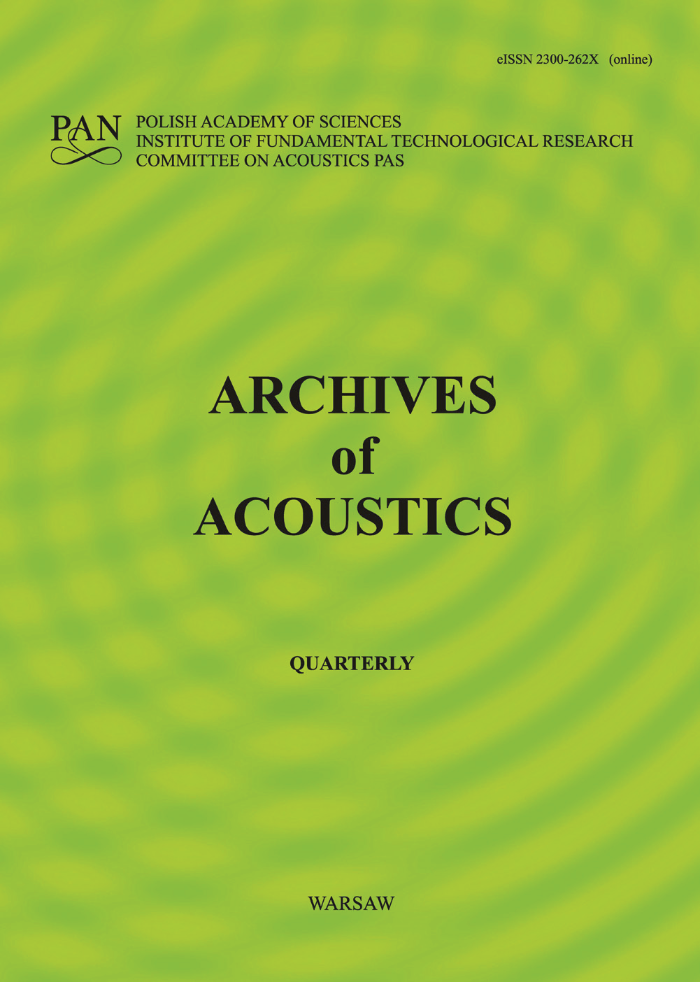Other articles by the same author(s)
- Mirosław MEISSNER, A Novel Method for Determining Optimum Dimension Ratios for Small Rectangular Rooms , Archives of Acoustics: Vol. 43 No. 2 (2018)
- Mirosław MEISSNER, Computer modelling of coupled spaces: variations of eigenmodes frequency due to a change in coupling area , Archives of Acoustics: Vol. 34 No. 2 (2009)
- Mirosław MEISSNER, Effect of cross-sectional area discontinuities in closed hard-walled ducts on frequency of longitudinal modes , Archives of Acoustics: Vol. 35 No. 3 (2010)
- Mirosław MEISSNER, Prediction of Reverberant Properties of Enclosures via a Method Employing a Modal Representation of the Room Impulse Response , Archives of Acoustics: Vol. 41 No. 1 (2016)
- Mirosław Meissner, Analysis of non-exponential sound decay in an enclosure composed of two connected rectangular subrooms , Archives of Acoustics: Vol. 32 No. 4(S) (2007)
- Mirosław MEISSNER, Evaluation of Decay Times from Noisy Room Responses with Pure-Tone Excitation , Archives of Acoustics: Vol. 38 No. 1 (2013)
- Mirosław MEISSNER, Influence of Absorbing Material Distribution on Double Slope Sound Decay in L-Shaped Room , Archives of Acoustics: Vol. 33 No. 4(S) (2008)
- Mirosław MEISSNER, Application of Hilbert Transform-Based Methodology to Computer Modelling of Reverberant Sound Decay in Irregularly Shaped Rooms , Archives of Acoustics: Vol. 34 No. 4 (2009)
- Mirosław Meissner, The effect of modal localization on reverberant energy decay in a case of two acoustically coupled rooms , Archives of Acoustics: Vol. 31 No. 4(S) (2006)
- Mirosław MEISSNER, Tomasz ZIELINSKI, Impact of Wall Impedance Phase Angle on Indoor Sound Field and Reverberation Parameters Derived from Room Impulse Response , Archives of Acoustics: Vol. 47 No. 3 (2022)


